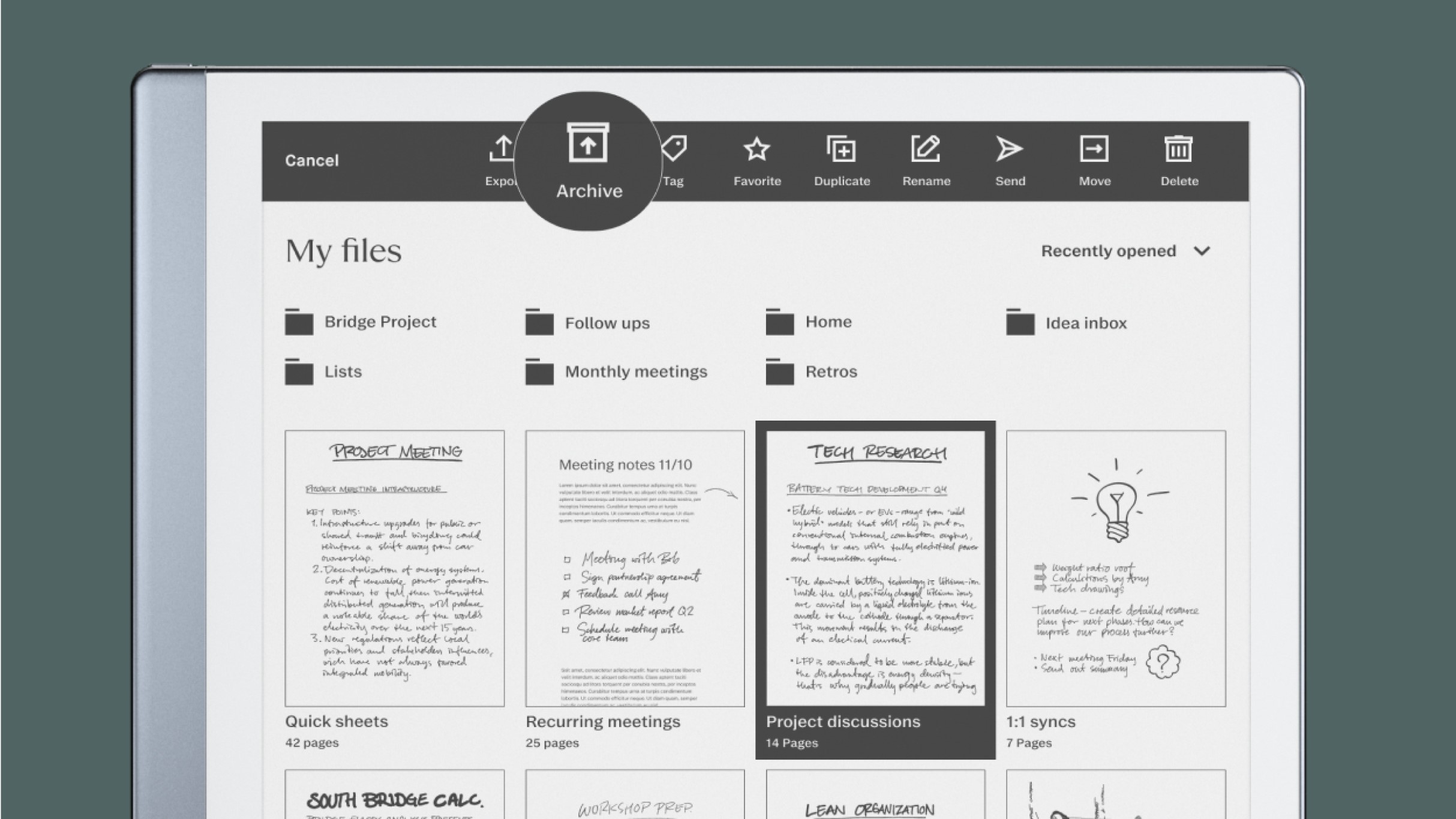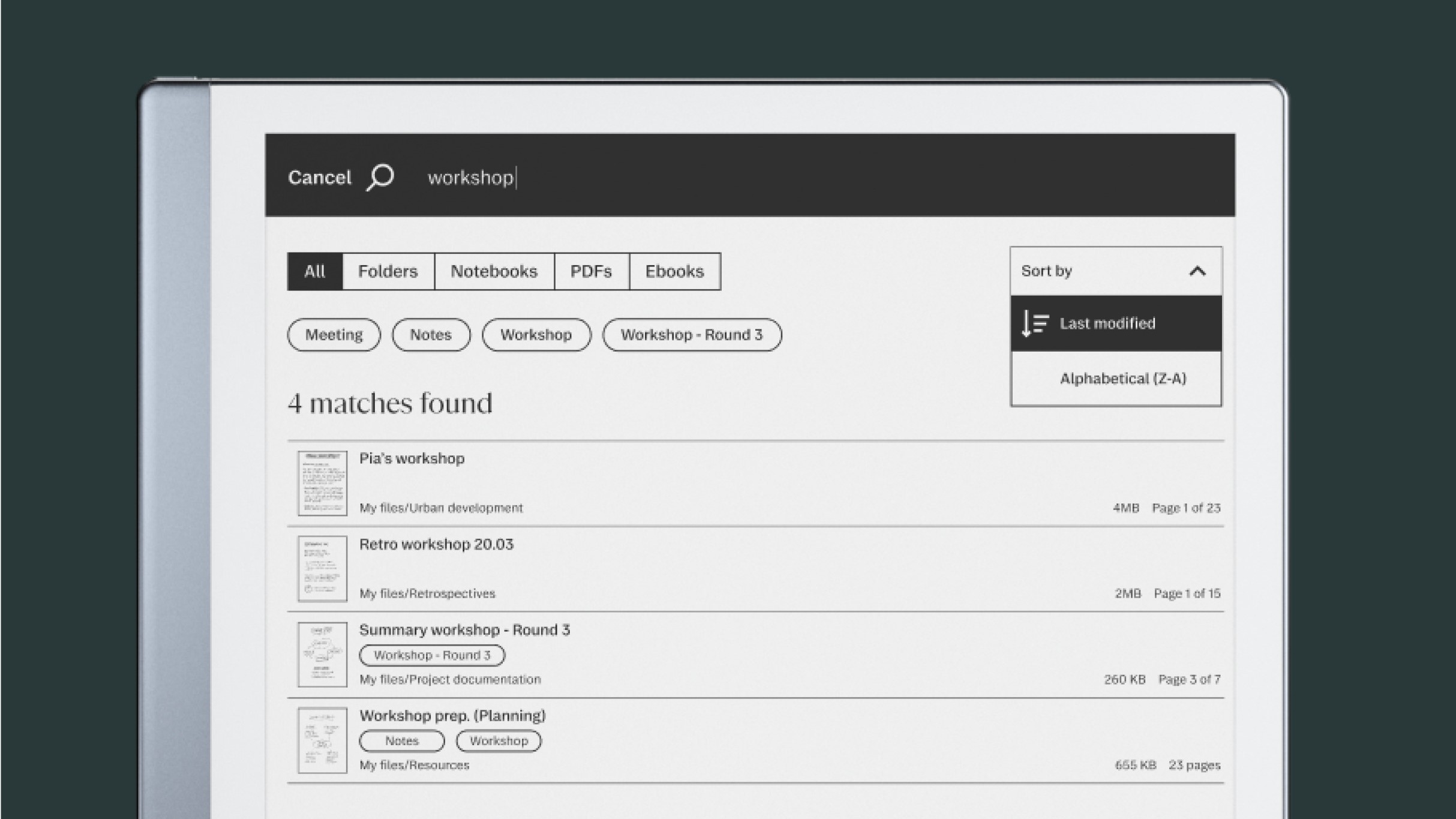
What You Need To Know
- Users with a Connect subscription can archive large files and store them in the cloud.
- The desktop app has a more traditional notebook feel to it.
- Type Folio users will have access to new keyboard shortcuts.
Users of reMarkable paper tablets will now be able to take advantage of having unlimited cloud storage as part of the company’s 3.10 software release. The update, which is rolling out, also brings new updates for the desktop app as well as a slew of other improvements, including new sorting features and keyboard shortcuts, per the company's blog.
The most noteworthy feature is the aforementioned cloud storage capabilities that users will be able to take advantage of. Users will now be able to archive large or unused files and place them in the cloud. Those archived files will always be accessible on the reMarkable mobile and desktop apps along with the device itself. While the reMarkable 2 provides 8GB of onboard storage, freeing up large or unwanted files is always a safe bet, especially if those files can be easily accessed later on.

It’s important to note that to take advantage of this new feature, users must have an active Connect subscription. Connect provides users with unlimited cloud storage along with note-taking on desktop and mobile and extra protection for the device. It costs $2.99 a month or $29.90 annually, though consumers are given a one-year Connect trial when they purchase the reMarkable 2 on the company’s shop.
reMarkable users will also notice that the desktop app has a new look following the 3.10 software release. The app is now more in line with a traditional notebook, featuring paper-like background colors and a Serif font.
Additionally, those who are subscribed to Connect can now convert their handwritten notes into typed text directly from the desktop app, where they can edit them in full. Handwritten notes can be converted into text from an entire page, a range of pages, or single pieces within a page.

Rounding out the update are new sorting features on the table itself that allow users to organize files alphabetically or by their last modified date. Tablet users who have a Type Folio keyboard will also have access to new shortcuts that make browsing documents even easier. Lastly, handwritten notes that are converted using the selection tool will no longer be saved to the clipboard and will instead be pasted onto the page.
reMarkable also notes in its blog that multiple tablets can be paired to one account, therefore allowing users to see updates made from a reMarkable 2 on a first-gen tablet and so forth. In all, these updates continue the Norwegian company’s commitment to changing the way consumers take notes, read, and edit documents.






